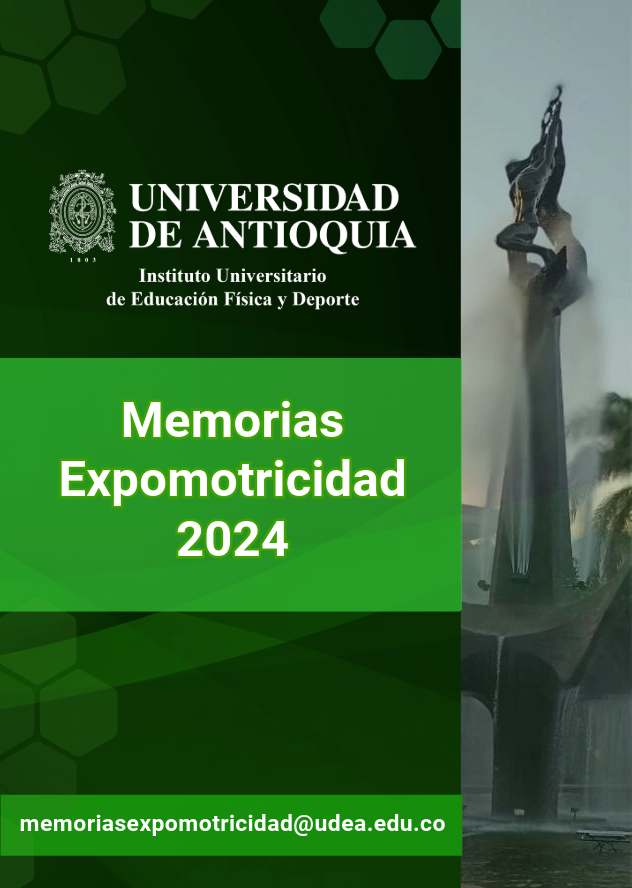Crenças dos Professores sobre a Formação dos estudantes de Educação Física
Palavras-chave:
currículo, educação física, formação de professoresResumo
Este projeto está associado a uma preocupação do comitê de currículo do Instituto Universitário de Educação Física e Esportes (IUEFD) da Universidad de Antioquia, que busca dar suporte de pesquisa ao currículo por meio do macroprojeto “Um currículo participativo com relevância social, histórica e cultural para a formação de profissionais da área no IUEFD”. O objetivo foi compreender as crenças que sustentam os discursos e as práticas do corpo docente que forma os futuros profissionais de educação física e esporte nessa instituição universitária. Para tanto, foi elaborado um estudo qualitativo com abordagem histórico-hermenêutica. Os resultados desse trabalho devem possibilitar a compreensão e a interpretação dos discursos e das crenças hegemônicas dos professores universitários da instituição, em termos de aspectos sociais, históricos, culturais, institucionais, pedagógicos, disciplinares e profissionais.
Downloads
Referências
1. Barbero González, J. I. (1996). Cultura profesional y currículum (oculto) en educación física: reflexiones sobre las (im)posibilidades del cambio. Revista de Educación, (311), 13-49. https://www.educacionfpydeportes.gob.es/revista-de-educacion/numeros-revista-educacion/numeros-anteriores/1996/re311/re311-02.html
2. Bonilla-García, M. Á., y López-Suárez, A. D. (2016). Ejemplificación del proceso metodológico de la teoría fundamentada. Cinta de moebio, 57, 305-315. http://doi.org/10.4067/S0717-554X2016000300006
3. Carreiro da Costa, F. (2009). El pensamiento del profesorado en el proceso enseñanza-aprendizaje en educación física. Educación Física y Deporte, 23(2), 41-60. https://doi.org/10.17533/udea.efyd.2053
4. Coenders, F., Terlouw, C., y Dijkstra, S. (2008). Assessing Teachers’ Beliefs to Facilitate the Transition to a New Chemistry Curriculum: What Do the Teachers Want? Journal of Science Teacher Education, 19, 317-335. https://doi.org/10.1007/s10972-008-9096-5
5. Díaz-Barriga Arceo, F. (2010). Los profesores ante las innovaciones curriculares. Revista Iberoamericana de Educación Superior, 1(1), 37-57. https://doi.org/10.22201/iisue.20072872e.2010.1.15
6. Ruiz Olabuénaga, J. I. (2012). Metodología de la investigación cualitativa (5a ed.). Deusto.
7. Smyth, J. (1991). Una pedagogía crítica de la práctica en el aula. Revista de Educación, (294), 275-300. https://www.educacionfpydeportes.gob.es/revista-de-educacion/numeros-revista-educacion/numeros-anteriores/1991/re294/re294-14.html
8. Strauss, A., y Corbin, J. (2016). Bases de la investigación cualitativa: técnicas y procedimientos para desarrollar la teoría fundamentada. Universidad de Antioquia.
9. Taylor, S. J. y Bogdan, R. (1987). Introducción a los métodos cualitativos de investigación. La búsqueda de significados. Paidós.
10. Torres-Santomé, J. (2019). Formación del profesorado y educación como proyecto político e inclusivo. Educação & Realidade, 44(3), 1-27. http://dx.doi.org/10.1590/2175-623684911
Downloads
Publicado
Como Citar
Edição
Seção
Licença
Copyright (c) 2024 José Albeiro Echeverri Ramos

Este trabalho está licenciado sob uma licença Creative Commons Attribution-NonCommercial-ShareAlike 4.0 International License.




